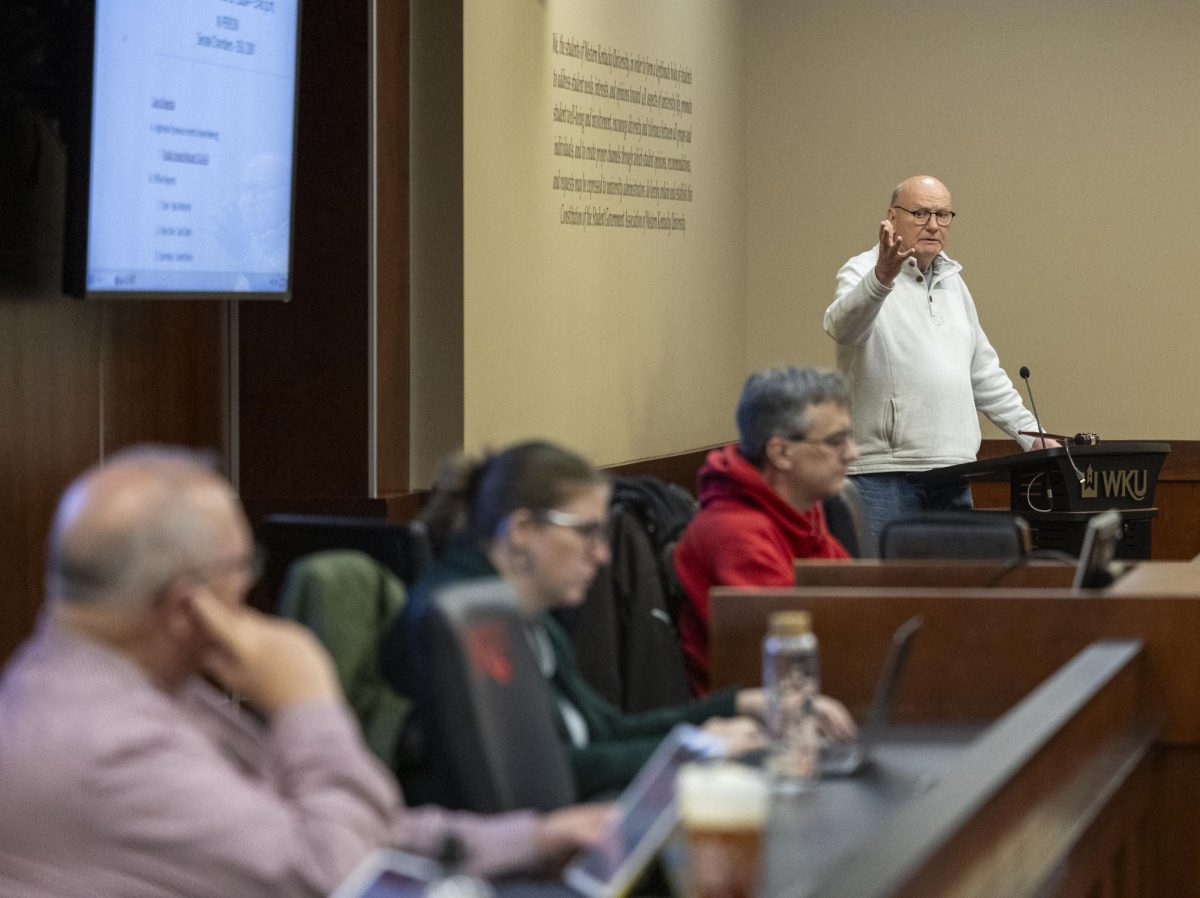Campus commemorates Banned Books Week
September 26, 2017
In commemoration of Banned Books Week, the fourth floor of Raymond Cravens Library is displaying a variety of controversial and previously banned books, encouraging students to take a look.
Banned Books Week is an “annual celebration of the freedom to read,” according to the Banned Books Week Coalition. It lasts from Sept. 24 to Sept. 30.
Athough students may know some books that are deemed controversial or have been banned in school systems before, many have likely never experienced book censorship in their own school system.
Regardless, students are quick to disagree when asked whether or not certain books deserve to be banned.
Houston, Texas, sophomore Nick Wartz views the banning of books as an attempt to unrightfully disguise the past by means of censorship and avoidance. He recalls “The Adventures of Huckleberry Finn” as a prime example.
“That’s part of history,” Wartz said. “There’s no sense in banning a part of history.”
Junior David Breidenich from Independence, Kentucky, is largely of the same accord, believing that simply disliking a book’s message or content does not warrant censorship.
“People should be free to read whatever they want,” Breidenich said. “Even if you don’t like them, I still don’t think they should be banned outright.”
WKU journalism major coordinator and professor Mac McKerral commonly speaks about media censorship in his classes. In his time as a teacher at WKU, he’s happy to have never witnessed any book bannings.
“I’ve been here a long time, and, to my knowledge, there’s never really been any kind of an effort on anybody’s part to keep things out of the library,” McKerral said.
With the presence of censorship in a learning environment, McKerral believes a student’s ability to learn and acquire knowledge is noticeably limited.
“Clearly, controlling information and the flow of information is a powerful tool,” McKerral said.
Versailles senior Slaid Leatherman is similarly concerned about censorship’s role in knowledge prevention.
Leatherman believes those who ban books fear the idea of too much knowledge in too many hands.
“That’s why people censor knowledge. Because they’re afraid of what that knowledge can do, what it represents,” Leatherman said.
Rather than forbid the possession of certain knowledge, Leatherman believes the way said knowledge is acted upon is what really matters.
“I think anybody should have the right to any knowledge,” Leatherman said. “Knowledge shouldn’t be forbidden, but we should control the way knowledge is used.”
Aside from common culprits like graphic violence or sexual content, especially within young adult literature, discussion of mental health issues has become a reason for book censorship.
“I think there’s a real sensitivity in the young adult genre,” McKerral said. “I think there’s a real sensitivity to books that talk about suicide and, you know, any kind of mental issues that kids encounter.”
McKerral addresses this by saying no research supports the notion that reading about suicide can lead to suicide.
“Although if you talk to counselors, including counselors on this campus, they’ll tell you that reading about suicide is never really a trigger for why it happens,” McKerral said.
McKerral states that it’s our prerogative to read or not to read, and that mass book bannings infringe upon the free speech we’re all guaranteed in the Constitution.
“We have a constitutional amendment that supposedly protects our speech, our expression,” McKerral said. “I think that rather than a handful of people making decisions that they think are of the best interest of everybody, that as individuals we ought to make those choices ourselves.”
Leatherman voices a similar opinion, saying he believes whether or not someone reads a book should be “up to individual discretion,” and that any attempt to stifle said discretion “restricts our freedom to live our lives to their full extent.”
Banned Books Week provides a subtle and well-earned reminder that one’s ability to choose is protected and secure, not only in regard to reading but in regard to deciding what or what not to believe.
“I don’t think we have to look too far to see the kinds of problems that countries run into when the civil authority and the moral authority are the same. It’s very problematic,” McKerral said. “So I think that people would be wise to pay attention to history.”
Reporter Griffin Fletcher can be reached at 270-745-2655 and [email protected].










